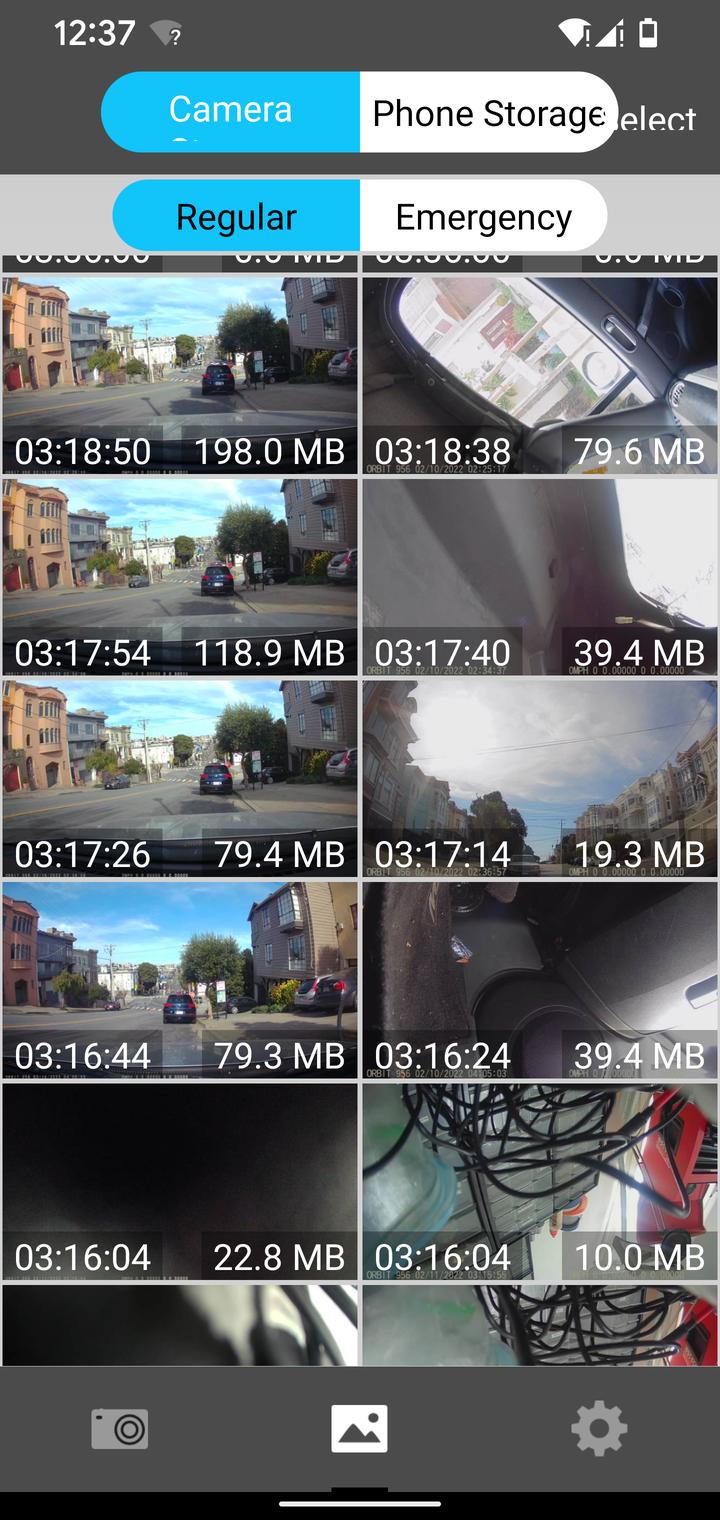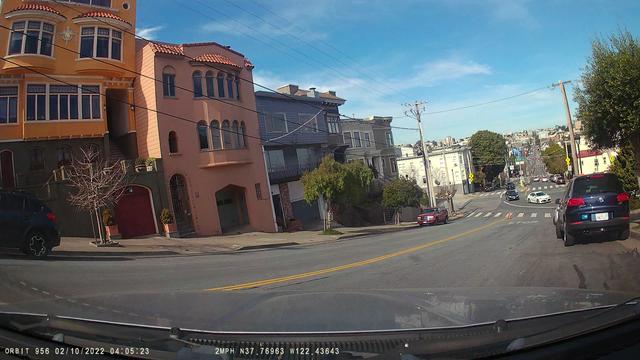
MyGekoGear Orbit 956 4K dash cam review: Affordable dual-channel with GPS
Pros
The MyGekoGear Orbit 956 is a dual-channel (front/rear) with integrated GPS for a nice price. However, the captures, while colorful, don’t show the detail we expect from 4K UHD and suffer blowout in bright areas
Best Prices Today
RetailerPriceDelivery$199.99FreeView$199.99FreeViewMyGekoGear$199.99ViewAdoramaNot AvailableFreeViewPrice comparison from over 24,000 stores worldwideThe MyGekoGear Orbit 956 is a front/rear dash cam combo whose major attractions are its handsome styling, integrated GPS, and $200 price tag (32GB SD card included). Alas, captures, 4K notwithstanding, are middle of the pack at best and have trouble with, of all things, license plates in bright conditions.
Design and features
The Orbit 956 is a rectangular affair with the exception of its integrated, static arm mount. Overall it makes for a sleek and modern appearance, but know that there are no adjustments once this cam is stuck to the windshield using its semi-permanent sticky pad.
This isn’t a problem as long as you’re careful about positioning and alignment while installing it. Note that the main body/arm slide off the sticky pad, which is in place when you pull it out of the box. It looks very much like a single unit, so don’t pull straight back. Don’t ask.

The Orbit 956’s up, down, and mode (menu/image/video playback) buttons are grouped on its right side, just above the SD card slot. The enter/power/stop recording button is on the top of the camera. On most dash cams, the enter and menu buttons trade places. Combined with a lack of feedback on actions, the reversal proved a bit counterintuitive in my hands. You might take to it like a duck to water. I’ll leave it at that.
Note that the SD card sits unusually deep in its slot. That prevents accidental ejection, and if you have fingernails, it’s easy to work with. Or, like me, you might need to grab a guitar pick or similar to help in the insertion/ejection.
The mini-USB port for the auxiliary power cord is next to the enter/power/stop recording button on top, and the 3.5mm jack for the rear camera is situated on the mounting arm between two vents, as shown below. That’s as handy a location as I’ve seen for a camera connection. Kudos.
The front camera on the main body of the Orbit 956 is 4K UHD (3840×2160), while the discrete rear camera is 1080p (1920×1080). Both offer a 150 degree field of view. (The rear camera is also mounted using a sticky pad.) You can also step down captures to 1440p or 1080p on the front camera to save storage space.
The back of the main camera body is dominated by an easy-to-read 2.5-inch color display and is also home to two status buttons (power/recording). The interface is easy enough to use, though I’d argue that currently selected options could be highlighted better. As it stands, the selected option is rendered in white text versus amber text when not selected. The scheme is simple enough once you’re used to it, but it flies in the face of convention and doesn’t make your choice blatantly obvious.
Scrolling through the four pages of options can be a bit ponderous, but the most-often used functions (resolution, WDR, etc.) are on the first page, and you can scroll backwards from the start to get to the latter pages more quickly.
As mentioned, the Orbit 956 has integrated GPS. It doesn’t set the time automatically (one of our favorite GPS tricks), but it does fire up relatively quickly. The watermarked information changes from all zeros to your current coordinates in about 20 seconds. Alas, GPS info isn’t embedded so you can’t track your travels using a trip viewer.
There’s a 200mAh battery on board which will power the dash cam for a good 10 seconds after the 12-volt is interrupted. That’s easily enough to capture most events where your electrical system goes kaput. The camera’s operating temperature range is from 14 to 149 degrees Fahrenheit.
The Orbit 956 offers the usual dash cam perqs such as a parking mode (sleep/wake on G-sensor disturbance), time lapse captures, WDR (Wide Dynamic Range/richer color), automatic saving of incident videos (shown as Emergency below). It also sports Wi-Fi that can communicate with your phone and the Orbit Cam app. The app allows you to view videos, etc. but doesn’t let you adjust settings, which would be handy indeed given the immature on-camera interface.
Note that your phone’s cellular data must be disabled.
Performance
The captures from the Orbit 956’s front camera are decent, though that’s not the adjective you want to apply to a 4K UHD camera. The color is good, but details such as license plate numbers and sign lettering, while visible most of the time, can disappear under bright conditions.
The day capture below is nice to look at, but it’s impossible to read the license plate directly ahead—the issue with blown-out bright areas I just spoke of. I tried again on a slightly cloudier day, but the problem persisted.
In the shot below you can see how the license numbers reappear when they aren’t dead center to the camera. This is the cloudier day I mentioned, but the numbers were still unreadable until I swung the nose of the car out.
The rear day captures below aren’t a whole lot better. The sun simply isn’t bright enough in this setting to cause the blowout you see on the Prius behind me. Overall sharpness isn’t great either.
The after-dark front camera capture below shows good detail. Go figure. This indicates that processing might be the issue rather than hardware.
The night rear captures (below) are clear enough to identify events and people, but not details like license plate numbers, etc. unless they’re very close.
In total, the MyGekoGear Orbit 956’s captures are below the current average in clarity, and not nearly what we’d expect from 4K UHD (front), or 1080P (rear). They’ll do the job under most conditions, but there’s a lot of room for improvement.
Affordable, but mid-tier at best
While $200 for a dual-channel front/rear combo dash cam with 4K UHD captures and GPS seems like a super bargain, the weak capture performance undercuts the value. If your needs are minimal or you drive only at night, it’ll do. But check out the competition in our dash cam roundup and don’t buy on price alone.
}})